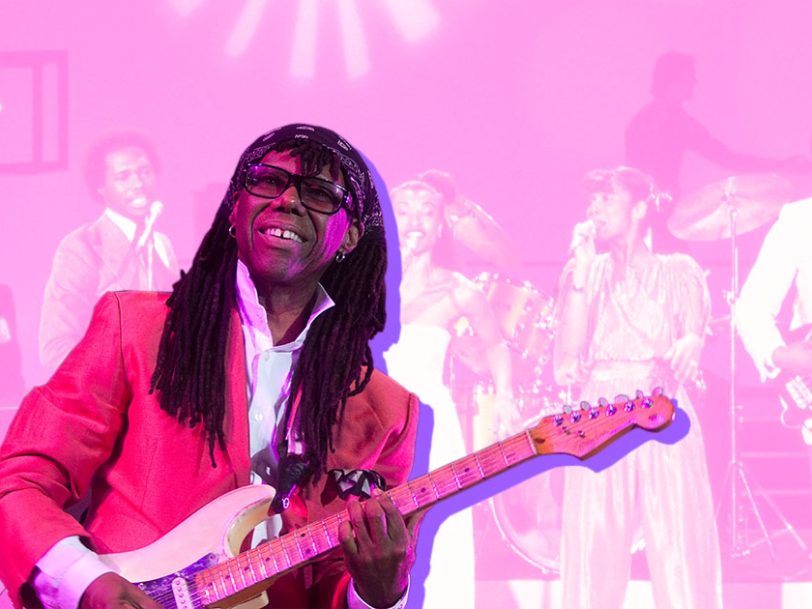In the early 70s, while disco music was still in its infancy, the New York City-based R&B/funk outfit Chic instinctively knew that it was missing a key ingredient. Aiming to make the disco sound more soulful and funky, the punchy bass-and-guitar combo of Bernard Edwards and Nile Rodgers added a new dimension which caused a tectonic shift in pop music that continues to be felt today. Thanks to classic hits such as Le Freak and Good Times, Chic raised the bar for disco and took it well beyond its LGBTQ+ club origins. “People wanted a place where everyone could be equal, and discos provided that,” Rodgers later observed. Placing themselves in the eye of the storm, Nile Rodgers’ funky guitar licks and Bernie Edwards’ virtuoso bass grooves elevated Chic to disco superstardom.
Listen to the best of Chic here.
“We didn’t want to be a small band. So we got into disco”
Formed in 1976, Chic were anchored by Edwards and Rodgers, a dream pairing born out of New York City’s R&B touring circuit. “We didn’t want to be a small band playing bar mitzvahs the rest of our lives,” Rodgers told The Washington Post in 1978. “So we got into disco.” While Rodgers had a love of Jimi Hendrix’s sonic innovations and a fondness for jazzy tonalities, Edwards was a hard-nosed R&B veteran, schooled in the grooves of Motown and foot-tapping soul songs. Together, they set out to use disco as a vessel for their funk-laden ingenuity.
Released in September 1977, Chic’s debut single, Dance, Dance, Dance (Yowzah, Yowzah, Yowzah), sold a million copies in under one month and peaked at No.6 in the US, quickly becoming the biggest hit of the summer. With Chic’s self-titled debut album resonating with both the “buppies” (Black Urban Professionals) and the hedonistic club-goers, Rodgers and Edwards set themselves apart by wearing suave suits, positively glowing with sophistication as they fashioned their cool R&B rhythms and kinetic funk breakdowns. Instant favourites with disco DJs, Chic’s music helped soundtrack the nightly escapism of fun-loving city-dwellers who frequented gay clubs such as Paradise Garage and bohemian venues such as The Night Owl.




